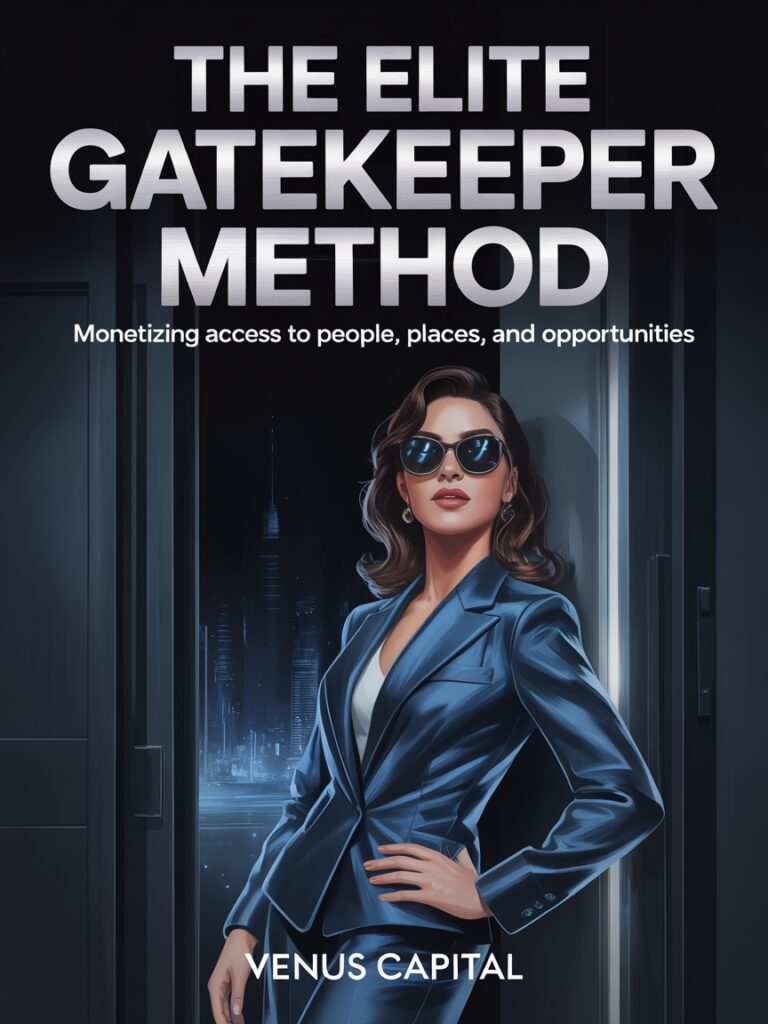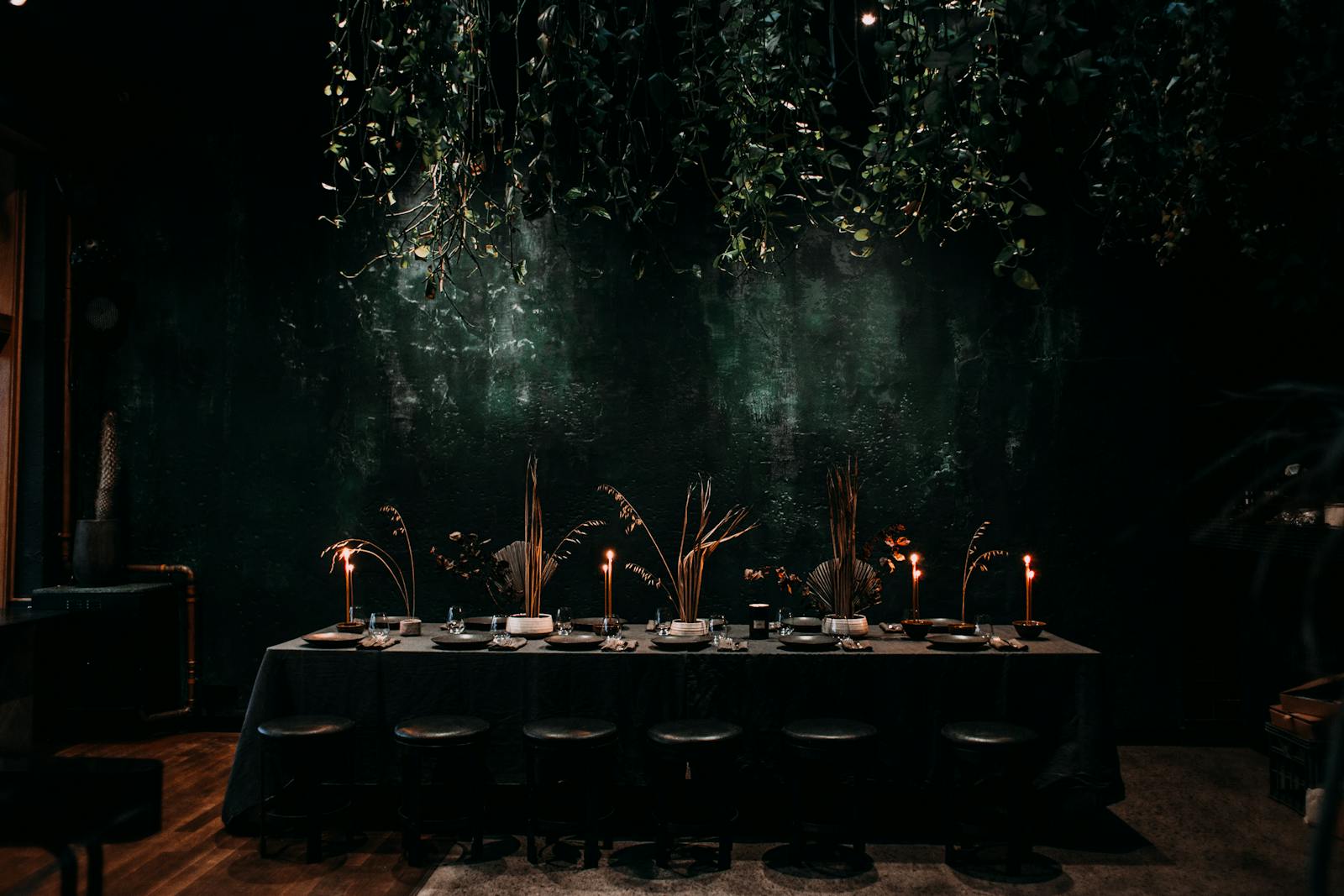There is a peculiar hunger that drives human beings — a hunger not for food, not for shelter, not even for survival, but for what is just out of reach. A velvet rope across the threshold, a closed door with whispers behind it, a limited edition object no one else can touch — these things consume us more than any necessity.
Exclusivity is the oldest drug, and its high is unlike anything else. It warps rational thought, pulls desire out of nowhere, and makes people pay obscene prices for what, in reality, may be worthless. The occultists and power brokers of history have always known this truth: people are less enchanted by what is offered than by what is withheld.
The Alchemy of Denial
Exclusivity functions like an ancient rite. The denied object takes on sacred status. The denied room becomes a temple. To be told “you may not” is to awaken a primitive part of the psyche that equates exclusion with mortality — because for millennia, being cast out of the tribe meant death.
That lingering echo of survival makes scarcity feel existential. A Birkin bag is not just leather and stitching; it is a modern talisman of survival through social belonging. A velvet rope in front of a nightclub is not merely rope; it is a symbolic line between the chosen and the disposable.
Every culture has known this power. Mystery schools thrived not because they offered wisdom, but because they withheld it. Secret societies never marketed themselves — they built mythology around locked doors. The ancient cults of Eleusis, the Rosicrucians, the Freemasons — all understood that the promise of initiation only matters if most are excluded.
Scarcity as Social Control
The truth is brutal: the easier something is to obtain, the less we want it. The more distant, costly, or forbidden, the more desirable it becomes. Scarcity hacks the brain. Psychologists call it “reactance”: when people feel their freedom to choose is restricted, they fight harder to reclaim it.
This is why luxury industries thrive not on abundance but on engineered lack. It is why waitlists drive frenzy. It is why “invite-only” carries more gravity than “open to all.” Scarcity turns objects into idols.
Consider the way Hollywood manufactures prestige. The Oscars, stripped of their mythology, are just trophies. But only a chosen few are allowed to contend. The exclusivity is the value. The same rule applies to private equity deals, secret dinners, and high-society galas. What happens inside is irrelevant. The true prize is the fact that most people are locked out.
The Shadow Side of Desire
On the occult level, exclusivity functions as a binding spell. To covet what is withheld is to be tethered to the gatekeeper who withholds it. That’s why high-status figures rarely appear desperate. Their distance creates orbit.
This reveals an uncomfortable truth: desire is not born from the object but from the obstacle. We don’t chase what is accessible — we chase the barrier. We are drawn to the forbidden fruit not because of its sweetness, but because it is behind God’s prohibition.
Exclusivity, then, is less about the thing and more about the denial of the thing. Luxury is never about the product. It is about the closed gate.
Case Studies in Controlled Desire
Nightclubs and the Velvet Rope
Why do people line up outside when there are empty tables inside? Because the denial itself generates value. A crowded line suggests demand. The bouncer — the gatekeeper — becomes the god of access. Every rejection adds weight to the acceptances.
The Hermès Waitlist
Hermès could sell Birkins openly. They don’t. They restrict, delay, deny. The waitlist is the brand. What people are buying is not the bag but the proof they survived the trials of exclusion.
Elite Investment Deals
The richest investors don’t find deals on public markets. They pay gatekeepers for access to whispers. The deal itself may be risky, even mediocre, but the exclusivity ensures they covet it. If everyone can invest, the deal isn’t worth taking.
Secret Societies
From the Freemasons to the Bilderberg meetings, secrecy is the brand. The fewer details revealed, the stronger the myth. The mystery is the magnet.
Exclusivity as a Modern Religion
Look around. Modern life is structured by digital gatekeeping. VIP tiers, private Discord servers, invite-only beta tests, membership-only communities — all engineered to manipulate the ancient psychology of exclusion.
Influencers who leave their DMs closed, brands that “drop” limited products, apps that require an invitation — these are not innovations. They are rituals of denial dressed in contemporary clothing. The holy of holies has moved online.
Exclusivity has become the true currency. In a world drowning in information, what is scarce is not knowledge but access. The wealthiest no longer flaunt ownership — they flaunt presence. Not what they bought, but where they were, who they met, what inner chamber they entered while the rest of the world pressed their faces against the glass.
The Paradox of Gatekeeping
There is, however, a paradox. Exclusivity thrives only so long as it is not universal. If everyone learns the formula, the spell collapses. That is why the gatekeeper, not the applicant, is always in control.
The wealthy are not powerful because they hold wealth — they are powerful because they hold doors. The nightclub owner, not the celebrity inside, decides who ascends. The hedge fund introducer, not the billionaire investor, controls who gets close. The occult secret society, not the initiate, decides who lives inside its myth.
True power has never been about possession. It has always been about permission.
Why Humans Crave Denial
The deepest question remains: why does the human psyche need this? Why do we not revolt against artificial scarcity?
Because exclusivity offers two primal rewards:
- Identity. To be inside is to be someone. To be outside is to be nothing.
- Immortality. Scarcity ties us to myth. To gain entry into the rare, the forbidden, the hidden — it feels like transcending mortality itself, stepping into a realm reserved for gods.
We crave exclusivity because it reassures us that life is not random. That if we can cross the threshold, we are chosen. That the velvet rope is not just fabric but fate.
The Dark Lesson for Operators
For those who study power, the lesson is clear: exclusivity is the lever that moves desire. Denial creates value. Scarcity sells itself. The gatekeeper always wins.
The question is not whether people will crave what they can’t have. They always will. The real question is: will you spend your life pressing your face against the glass — or will you be the one holding the key?
Final Reflection
Exclusivity is more than a marketing trick. It is the architecture of desire itself. From occult initiations to modern luxury brands, from secret societies to private investor networks, the psychology has never changed: humans chase what they are denied.
That is why the most powerful figures in history are rarely visible. They are the invisible operators. The ones deciding who enters and who remains outside.
And this is precisely what The Elite Gatekeeper Method reveals — how to stop chasing entry into someone else’s circle, and instead become the circle. To transform from seeker to sovereign. To master the art of controlled access and wield the ancient psychology of exclusivity as your own instrument of power.
Because in the end, possession fades, fame rots, wealth shifts hands. But control over the gates — that is eternal.

Continue the Initiation
If the psychology of exclusivity fascinates you, The Elite Gatekeeper Method is your initiation into the hidden strategies that power brokers, fixers, and silent influencers have always known. This isn’t about fitting in — it’s about owning the gates themselves. Discover how scarcity becomes wealth, and how denial becomes power. Read it now on Amazon.
You may also like
-
Transformation vs. Annihilation: Why the Ego Panics Before Change
-
The Zeigarnik Effect: Why Unfinished Loops Make People Obsess
-
Humiliation as Ego Death: Why Identity Collapses Can Liberate
-
Dreams as Corridors in the Labyrinth of the Mind
-
The Psychology of Tiny Indulgences and Why They Satisfy Longer

